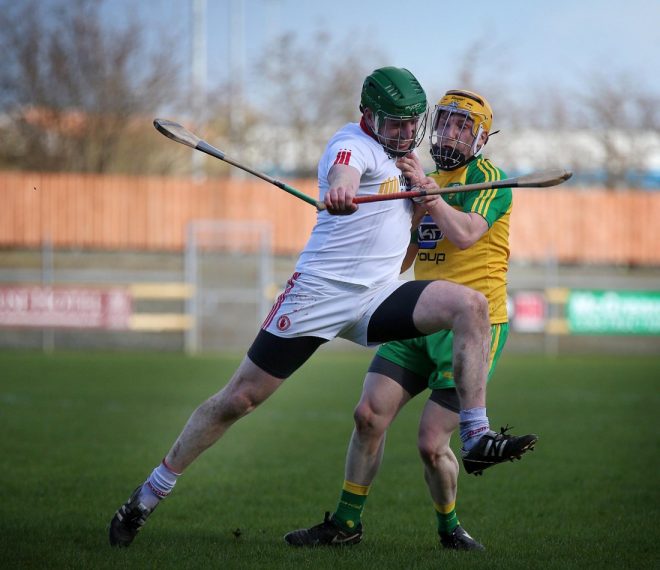
Action from yesterday’s hurling game between Donegal and Tyrone.
DONEGAL was a hurling stronghold long before a Gaelic football was bounced or kicked in anger, it has again been confirmed.
According to the analysis of 1,296 skeletons, excavated near Ballyshannon in 2004, researchers suspect winter hurling games were the reason the thumbs and fingers of 71.4 per cent of males were fractured.
“In modern-day hurlers, the metacarpals are the most commonly fractured hand bones, followed by the first proximal phalanges,” said Ms Catriona McKenzie, a lecturer in human osteoarchaeology at Exeter University, in a report.
She earned a PhD from the scientific analysis of the human remains discovered at Ballyhanna, 2 km inland from Ballyshannon.
“It’s likely the game camanachd (shinty) was played during the medieval period in Donegal and it is possible some of the injuries identified at Ballyhanna were sustained during participation in this game,” Ms McKenzie added.
She also pointed out that a depiction of a hurly and ball was found on a 15th century gravestone in Inishowen.
The skeletons were discovered during excavations along the route of the bypass. More than 1,200 skeletons were uncovered and excavated in the forgotten Medieval Church and graveyard at Ballyhanna.
Radiocarbon dating suggests the cemetery was in use from between the 7th and 17 century.
For full report, see Monday’s Donegal News or subscribe to our digital edition.
Receive quality journalism wherever you are, on any device. Keep up to date from the comfort of your own home with a digital subscription.
Any time | Any place | Anywhere









